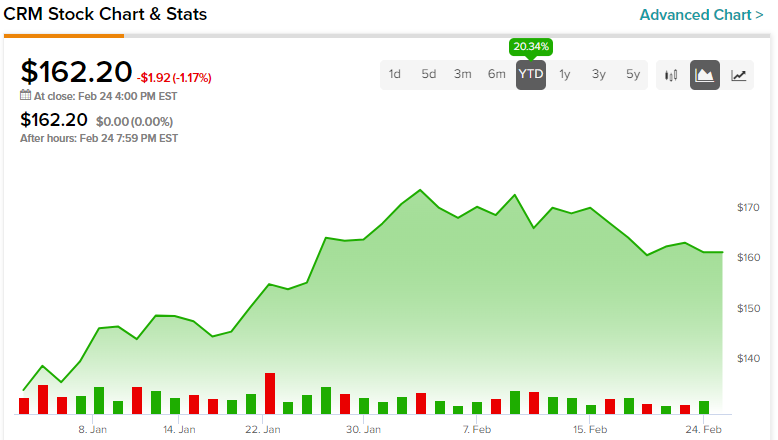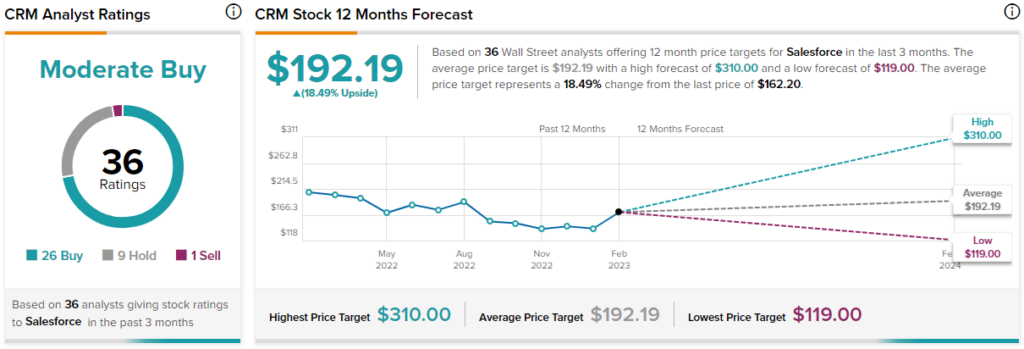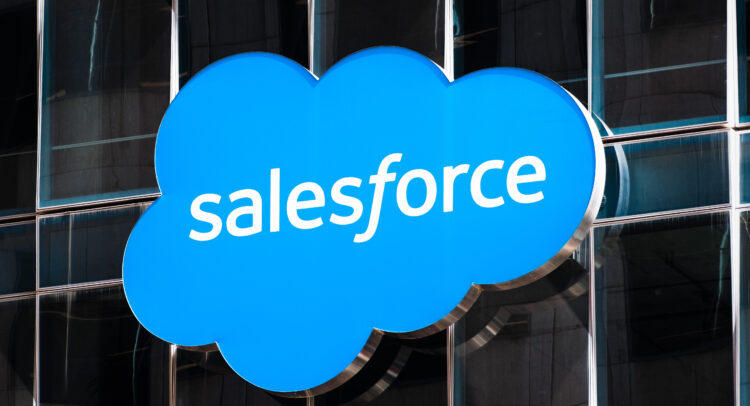Excitement is building around Salesforce (NASDAQ:CRM), as hedge funds and activist investors continue to swarm around the company in droves. The big question on everyone’s mind is whether this makes for a golden opportunity to invest in the thriving tech giant or if the sheer volume of attention could end up doing more harm than good.
It remains to be seen whether these activists will end up being a force for good or for bad when it comes to Salesforce’s future. That said, with the company maintaining a robust growth trajectory and shares still trading at a relatively attractive valuation, I believe that Salesforce stock continues to present a compelling opportunity despite its recent gains. Accordingly, I am bullish on the stock.

Activist Investors are Circling Salesforce
Recently, Salesforce has been making headlines as multiple activist investors and hedge funds have flocked to Marc Benioff’s CRM solutions powerhouse. With the company’s impressive growth, improving profit margins, and consistent ability to achieve synergies between its subsidiaries, it’s no wonder that hedge funds are eager to get in on the action and unlock further value within the company.
In fact, just a few weeks ago, news broke that Elliot Management, one of the most successful activist hedge funds, had amassed a multibillion-dollar investment in Salesforce.
This came after activist investor Starboard Value had also acquired a “significant” stake in the company last October. According to CNBC‘s David Faber, Starboard founder Jeff Smith’s goal is to enhance Salesforce’s mix of growth and profitability, which he believes is currently “subpar” compared to its competitors. He’s calling for increased performance, citing Salesforce’s targets as “less ambitious” than those of its peers.
The buzz around Salesforce continues to grow as more high-profile investors have jumped on board. In early February, activist hedge fund Third Point announced that it had acquired a stake in the company, joining the ranks of other well-known investors. And that’s not all – just a week later, Stephen Mandel’s Lone Pine also disclosed its investment in Salesforce through its latest 13F filing.
But the interest doesn’t stop there. As more funds released their 13F filings, it became clear that Starboard Value – one of the first activists to invest in Salesforce – had increased its stake in the company even further, now owning around 3 million shares.
Steven Cohen’s Point72 Asset Management has also jumped on the bandwagon with a new position in Salesforce of approximately 3.35 million shares. These are just the major players grabbing headlines – there are numerous smaller hedge funds taking a piece of the pie, too.
What Does Increased Activist Activity Mean for Salesforce?
It’s hard to miss the flurry of activity surrounding Salesforce, and it seems that activist investors are convinced that there’s even more value to be unlocked. Despite the company’s impressive performance thus far, hedge funds believe that shares are undervalued and that they can help unlock incremental value for the company. Still, what does this mean for Salesforce and its shareholders?
On the one hand, the presence and influence of hedge funds can be a positive catalyst, as these investors are motivated to grow the value of their holdings. They likely have solid plans in place to elevate Salesforce’s overall growth and profit margins. After all, they wouldn’t invest their capital without a strong strategy.
However, there’s also the potential for confusion and a lack of clear direction for the company. With so many different stakeholders vying for attention, it could be challenging to keep everyone aligned and on the same page.
In fact, in late January, Salesforce announced that it would be adding three new independent directors to its board to mitigate the pressure is facing from all these different activists. This was after investor Elliott Management said it was preparing to nominate “a slate of directors” for Salesforce’s board.
It’s anyone’s guess whether the influx of activist investors will help Salesforce stay focused on meaningful initiatives or if it will create chaos and confusion. With so many different voices vying for attention, it’s hard to predict how this will all play out.
Is CRM Stock a Buy, According to Analysts?
Turning to Wall Street, Salesforce has attracted a Moderate Buy consensus rating based on 26 Buys, nine Holds, and one Sell assigned in the past three months. At $192.19, the average Salesforce stock forecast implies 18.5% downside potential.

The Takeaway
As mentioned, the fact that activist investors have been flocking to Salesforce is an indication that they believe the stock is undervalued relative to the additional value they can unlock. They seem convinced that the stock is a diamond in the rough and just needs a little polishing to unleash its full potential.
Starboard has already hinted at this, but it’s hard to say whether these activists will be a blessing or a curse for the company, as mentioned earlier. Therefore, it makes sense to exclude any extraordinary impacts on the business and value it based on its ongoing performance and future estimates.
In its most recent Q3 results, Salesforce managed to sustain its revenue growth in the mid-teens, with revenues advancing 14% (or 19% in constant currency) year-over-year to $7.84 billion. The company also guided for double-digit growth in its upcoming Q4 results, expecting to end Fiscal 2022 with 17% revenue growth. That’s impressive during a year with heavy FX headwinds and enterprises striving to reduce costs.
Analysts expect these growth rates to result in earnings per share of about $4.93 in Fiscal 2023, which is then expected to jump to $5.86 in Fiscal 2024. In other words, shares are currently trading at about 27.7x their forward earnings for 2024.
In my opinion, this multiple seems reasonable given the expectation of sustained double-digit growth in earnings per share, especially with the added potential benefits of having activist investors heavily involved — hence my bullish outlook.










